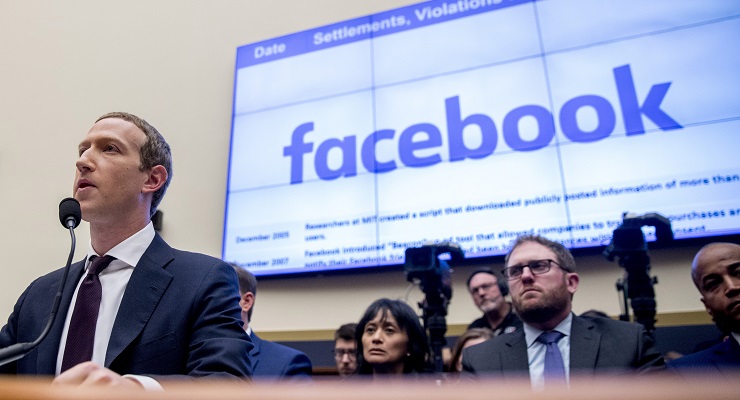
You’re “killing people”, says the US President. You’re sneaky with data, implies Apple. You’re “ugly”, assert reporters from The New York Times.
So, just how stuffed is Facebook? This morning’s release of their latest quarterly figures gives a clue.
Feels like we’ve passed peak Facebook. It’s losing its social licence, putting us at the beginning of the slide that threatens to send the emblematic News Feed tumbling head-over-heels down into the slough where now lurk once-were tech giants like Yahoo or MySpace.
The “killing people” vaccine misinformation demonstrates that five years after the platform’s misinformation woes blew up in the 2016 US election, and despite all its efforts to moderate content, the company struggles to convince people who matter that it’s useful, engaging — and accurate.
Facebook has long bragged about “growth”, but this morning it reported that while use of digital services surged in the stay-at-home pandemic, Facebook… well, didn’t. In its North American heartland (and in the rest of the developed world like Australia), both users and how often they use the platform have been flat since the pandemic began.
Sure, it’s a high peak, with an estimated average 1.9 billion people using Facebook on a given day, but this is tech where, as Bob Dylan cautioned, “he who is not busy being born, is busy dying”.
Wall Street is looking at the surging advertising revenues where the company has been able to leverage its monopoly power: although year-on-year advertising volume is about the same (up 6%), the average price per ad is up a whopping 47%. You can’t keep pulling that trick, and indeed the company says it expects year-on-year growth to “decelerate” over the rest of 2021.
Facebook is an advertising channel, with a micro-targeting promise that it knows what you want better than you do — and much better than old-fashioned mass media like television or newspapers do.
There’s an immediate problem: the data-scooping that their advertising model relies on is under threat, with the latest Apple iOS requiring users to opt-in to allow Facebook to watch what you’re doing on other apps. Looks like about three in four iPhone users are declining the opportunity, which Facebook says will hit their ability to track your data (and so “serve” you ads) this quarter.
Advertising channels need a schtick to work. For Facebook (as per its mission statement), it’s “to give people the power to build community and bring the world closer together”. It’s bullshit, of course (as Jill Lepore wrote in this week’s New Yorker) but it’s the critical underpinning for their social licence to operate. But, like fairies in Peter Pan, it only works if people trust you enough to believe it.
If you can’t grow an audience (that advertisers want to talk to), you need to grow “share of wallet” to get more out of each user you have. (It’s in Facebook’s roots: that was the idea of the News Feed launch in 2006.)
For five years, Facebook has been doggedly chasing your time, with failed pivots to catch up with emerging services: video in 2016, dating in 2017, family and friends in 2018, digital currency in 2019, newsletters in 2020 and, now, a pivot to everything — or the “metaverse”, as CEO Mark Zuckerberg declared this month.
The metaphor demonstrates a fundamental truth: you can lead a billionaire to pop culture but you can’t make them think. The metaverse comes from the Snow Crash privatised corporate dystopia dominated by corrupt billionaires. Can’t think what the attraction might be.
It’s not clear what the metaverse plan is, but it seems like it’s an attempt to leverage the investment in virtual reality through Oculus, partly to challenge Netflix and Disney for streaming and partly to create a Facebook-for-work in the space already crowded with Google, Zoom, Slack and LinkedIn.
As a company, Facebook has options. The “nice” social platform, Instagram (bought to block competition in 2013), is now thought to be delivering about 40% of revenues (although Facebook doesn’t declare individual platform results) without the same misinformation baggage. WhatsApp is dominating messaging, although there’s no clear plan to make money out of it and it has its own misinformation crisis.
But there’s a threat here, too: the logical break-up of Facebook by eager US regulators would involve unwinding the takeover of both companies.
Meanwhile, the chutzpah of the billionaire big tech class, from Bezos’ space tourism to Zuckerberg’s July 4 hoverboard, has compounded concerns over the use of tax shelters, the ongoing war with old media and data surveillance to damage both their personal standing and the brand of the companies they control. But who’s going to switch the emperors’ status to “naked”?
Private Media, the publisher of Crikey, has a news content licensing agreement with Facebook.








This Zuckerberg is an evil little bastard
Globally younger demographics have been deserting Facebook over many years for other SM platforms, to be replaced by older users, especially post smartphone.
Some younger members of my family last year started a family only messaging system. As the majority of us use iOS it has worked well, we share stories, photos, videos and meeting plans. One young niece informed us all that there were rumours that Apple is planning a private Facebook-like platform. I already read about Apple’s new cross-platform FaceTime plans for ios15, so the future seems quite bright for those of us who want the family group functionality plus the privacy.